'Odd socks' murder suspect was friend of family
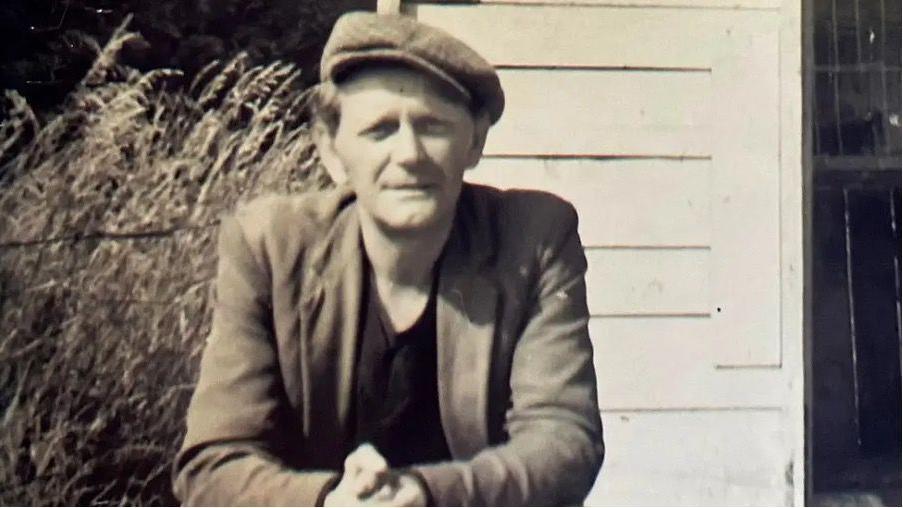
Alfred Swinscoe had been at the pub with his sons on the day he went missing
- Published
A family friend was a suspect in the murder of miner Alfred Swinscoe, whose remains were found more than 50 years after he went missing.
Mr Swinscoe was last seen drinking in a pub in Pinxton, Derbyshire, in January 1967.
His buried remains were discovered on farmland in April 2023, with a post-mortem examination concluding he had been stabbed and beaten.
The suspect, who has since died, is one of two men police believe may have been involved, a BBC investigation has found.
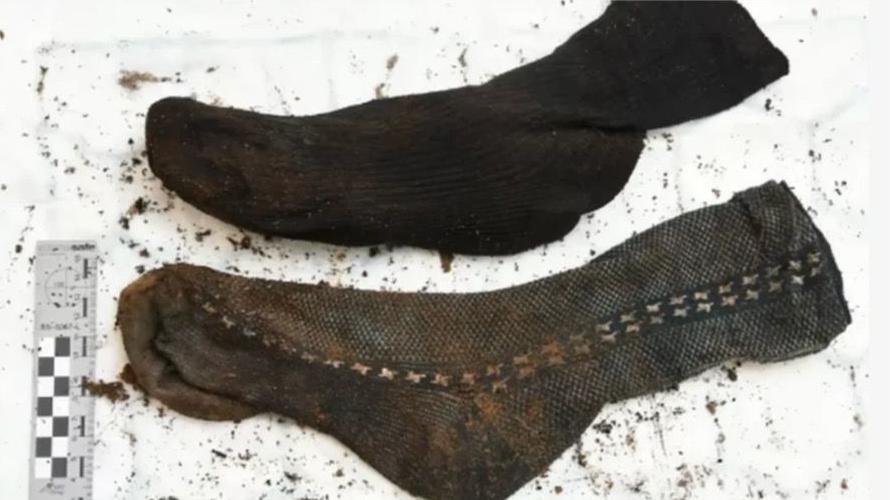
The odd socks found with Mr Swinscoe's remains that helped identify him
The second suspect has also since passed away.
Mr Swinscoe's remains were uncovered in Sutton-in-Ashfield, Nottinghamshire, while digging work was taking place in a field.
He had been buried four to six feet deep.
Odd socks found on the skeleton were recognised by his grandson, allowing the remains to be identified.
In November, a coroner found the 54-year-old had been unlawfully killed after sustaining multiple traumatic injuries.
The BBC is not naming either of the men suspected of involvement, out of respect to their surviving relatives.
But interviews with those who knew the family friend, as well as historical records, build a picture of a man with a history of violence.
The unprovoked attack
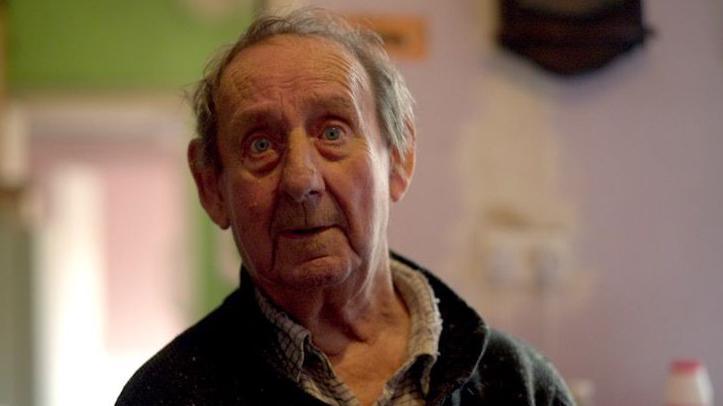
John Shawcroft was so badly injured, he was in hospital for two weeks
In April 1966, a Pinxton man - John Shawcroft - was brutally assaulted.
Mr Shawcroft drank in the Miners Arms, where Mr Swinscoe was last seen, and saw him regularly.
He also knew the "family friend" suspect well.
"We used to go drinking," he said. "And mess about with motorbikes and cars."
Their friendship ended suddenly that night.
After driving to Mansfield to go drinking, the pair were sitting in the man's car together.
Without warning, the man hit Mr Shawcroft in the face, then walked from the driver's side to the passenger seat, dragged him out of the car and kicked him repeatedly as he lay on the floor.
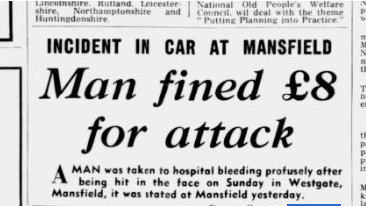
One of the suspects was convicted of malicious wounding, as reported in the local newspaper in 1966
"We were just talking. Next thing - bang," said Mr Shawcroft. "I can remember him kicking me and that were it. I just lay there, I did."
Mr Shawcroft was left "bleeding profusely", and was so badly injured he was in hospital for two weeks.
Nottinghamshire Police said some of his wounds were similar to the blunt-force injuries believed to have been inflicted on Mr Swinscoe.
His attacker was convicted of malicious wounding, one of the most serious violent offences in our legal system.
An uneasy encounter
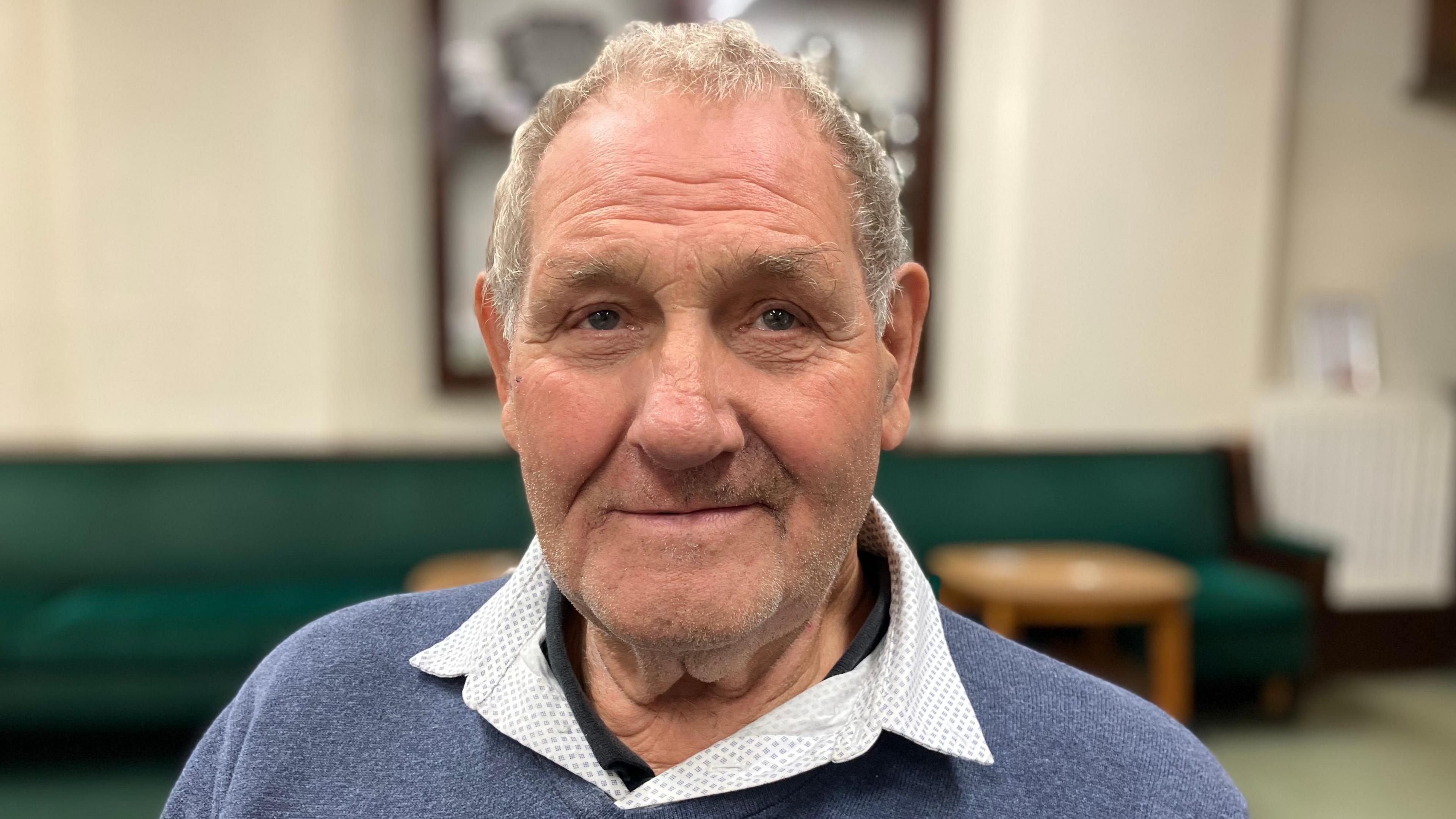
Mr Webster was taken on an out-of-the-way drive by the suspect
Another Pinxton man, Fred Webster, went to school with Mr Swinscoe's youngest son.
Around the time of the miner's disappearance, he said he had a strange encounter with the same man who assaulted Mr Shawcroft.
Owning a car was unusual in Pinxton in the 1960s. So when the man - who was eight years older than Mr Webster - offered him "a spin in a car", he didn't take much persuading.
"He just turned up and he just asked me if I wanted to go out like," he said.
"I sort of judged him as a bit strange."
The man took Mr Webster on a high-speed drive near woodland off Coxmoor Road in Sutton-in-Ashfield - close to where Mr Swinscoe's body was buried.
"He said something like, 'these woods on the right hand side,' and something about 'you can sure hide summat up there'," he said.
The two men went to a pub and had a few drinks, but never went out together again.
Mr Webster said the drive left him with an uneasy feeling – partly because of the route, which was out of the way, more than six miles from Pinxton where they both lived.
What else do we know about the family friend?
The BBC understands the man served in the military when he was in his 20s and was friends with his eldest son.
In 1962, he was imprisoned for six months for driving whilst disqualified and without insurance, and theft.
Archive newspaper reports also show that in 1973, he was accused of assaulting two police officers.
Mr Swinscoe's grandson said that, according to his uncle, the same man followed the miner out of the pub on the night he went missing.
The second suspect
Nottinghamshire Police released a number of details about the first suspect – including his conviction for the attack on Mr Shawcroft in 1966.
They said "the decision to declare him as a suspect is a really sound one".
But the force has said very little about the second suspect.
The BBC's investigation has established he was a Pinxton man and that he was known to Mr Swinscoe and his family.
The evidence against him – and the first suspect – is far from concrete. But police said if the two men were alive today, they would have been brought in for questioning.
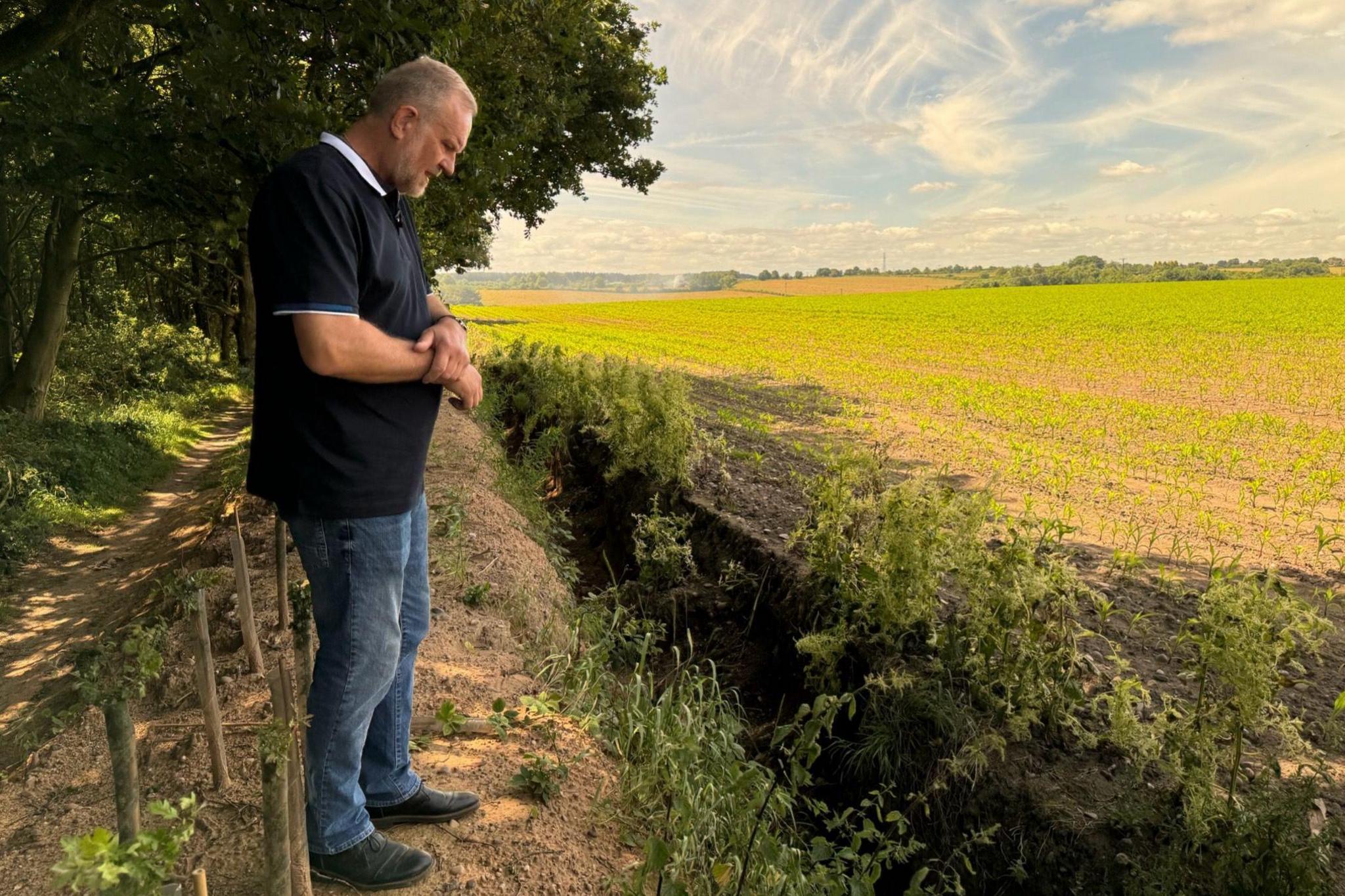
Russell Lowbridge at the site where his grandfather's remains were found
Could police have done more?
Members of Mr Swinscoe's family are angry that more was not done by Derbyshire Police, who conducted the original investigation into the disappearance.
Some in the local community have long believed the "family friend" was involved in the murder.
And the BBC has also been told that members of Mr Swinscoe's family gave his name to police at the time.
Retired East Midlands murder detective Peter Bray said in the 1960s, officers sometimes did not take missing people cases seriously.
"The mindset was probably 'the missing person will turn up, let's wait until they turn up before we look into it in more depth'," he said.
In August, detectives said all paperwork from the time of the disappearance had been lost.
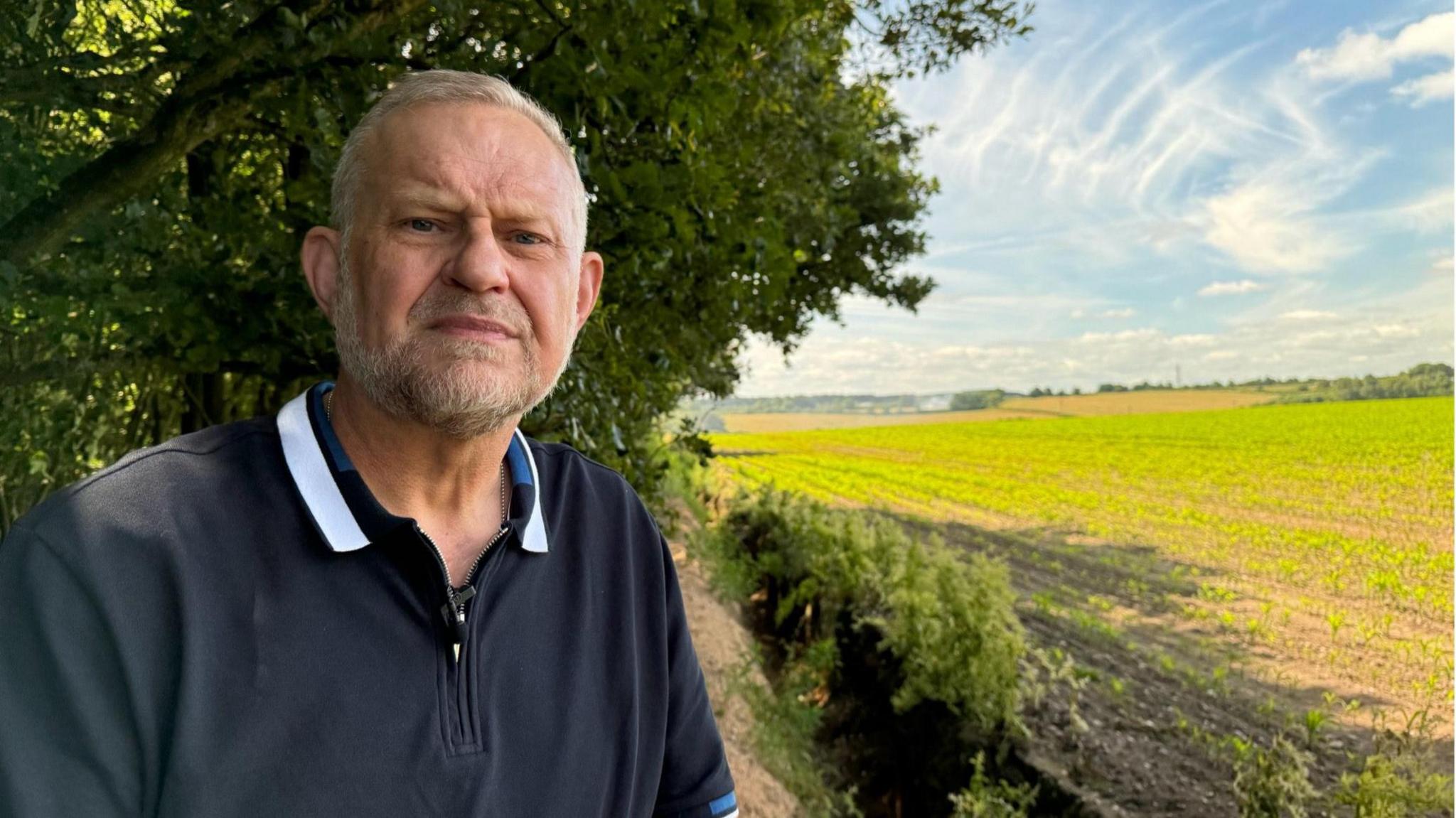
Mr Lowbridge has concerns about how police handled the case
There is also concern about Nottinghamshire Police's handling of the case since Mr Swinscoe's remains were found.
John Shawcroft told the BBC the force had not contacted him during its investigation, despite it including the 1966 assault in evidence supporting the case against the first suspect.
Fred Webster said he also felt the police had been dismissive.
Earlier this year, when a new appeal was launched over Mr Swinscoe's murder, he contacted police to tell them about the "strange" man who had taken him for a drive.
"I rang the police up," he said. "They said, 'we don't want to know. We know who they were and they're dead'.
"So I said, 'you don't want to know who I think did it, then?' They said no and put the phone down."
The Odd Socks Murder
How the chance discovery of human remains reopened a decades-old mystery
Watch now on iPlayer or on Friday 13th December at 19:30 on BBC One in the Midlands.
Mr Swinscoe's grandson, Russell Lowbridge, said: "It don't seem right, does it?"
"They put an appeal out there for the public to help, and to me that's just snubbing them."
The BBC contacted Nottinghamshire Police with the information provided by both Mr Webster and Mr Shawcroft, pointing out they had not been interviewed.
After receiving this information, the police later issued a statement stating detectives have now spoken to "two witnesses" and "the information they provided was extremely helpful".
The force did not say why they were not interviewed earlier, but added: "We do now know that when one of the two witnesses had tried to contact us with information, their report, unfortunately, was not taken from them in full. It has been now and we thank them for their help."
It said police had left "no stone unturned in the search for Alfred's killer or killers".
Assistant Chief Constable Rob Griffin said: "Alfred's family remain at the heart of everything we do."
Responding to accusations more was not done at the time of the disappearance, a Derbyshire Police spokesperson said: "The way that the police investigates both missing persons and homicide have significantly changed since 1967."
They added: "The murder of Alfred Swinscoe was a horrific act, and our thoughts remain with his family and friends."
Additional reporting by Mary O'Reilly
Get in touch
Tell us which stories we should cover in Nottingham
Follow BBC Nottingham on Facebook, external, on X, external, or on Instagram, external. Send your story ideas to eastmidsnews@bbc.co.uk, external or via WhatsApp, external on 0808 100 2210.
Related topics
- Published18 November 2024
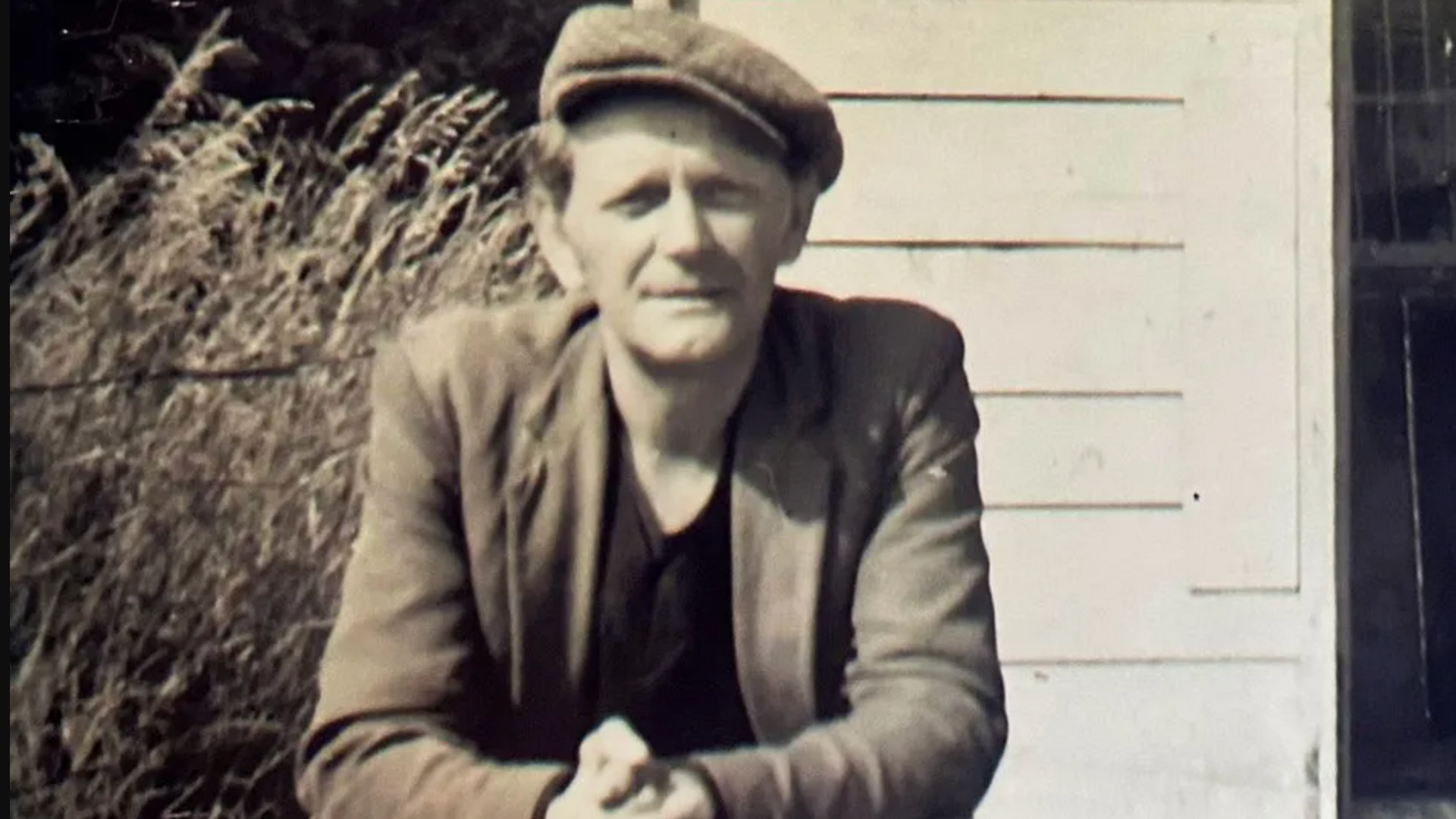
- Published16 August 2024

- Published10 October 2023
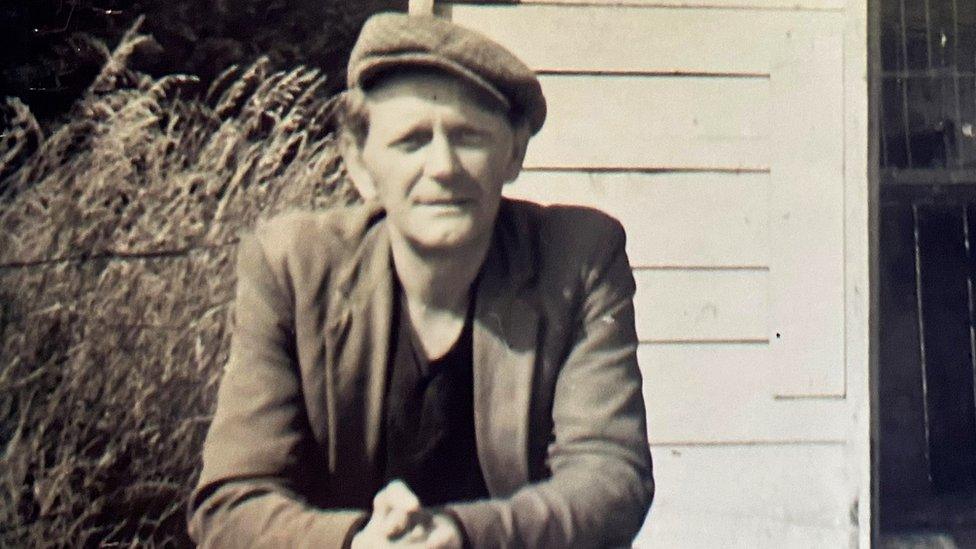
- Published8 June 2023
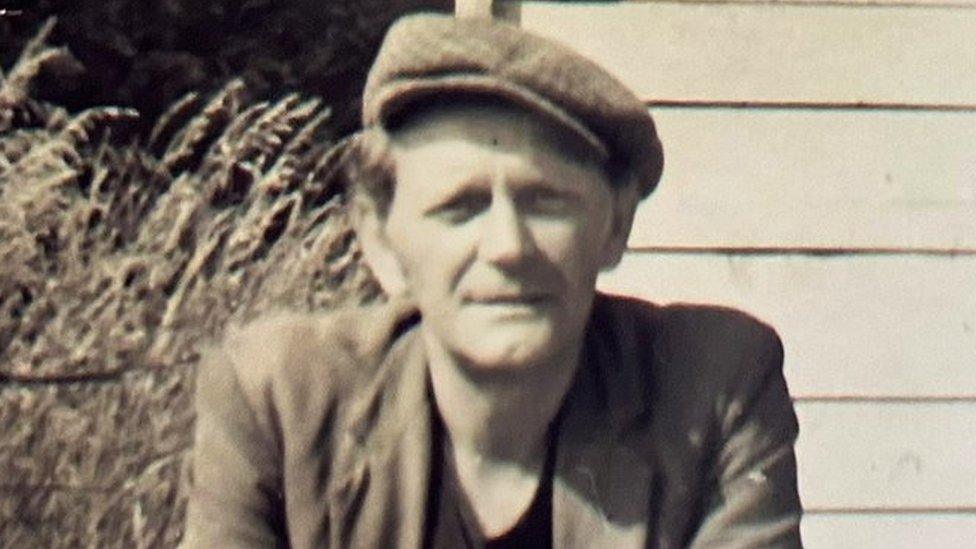
- Published24 May 2023
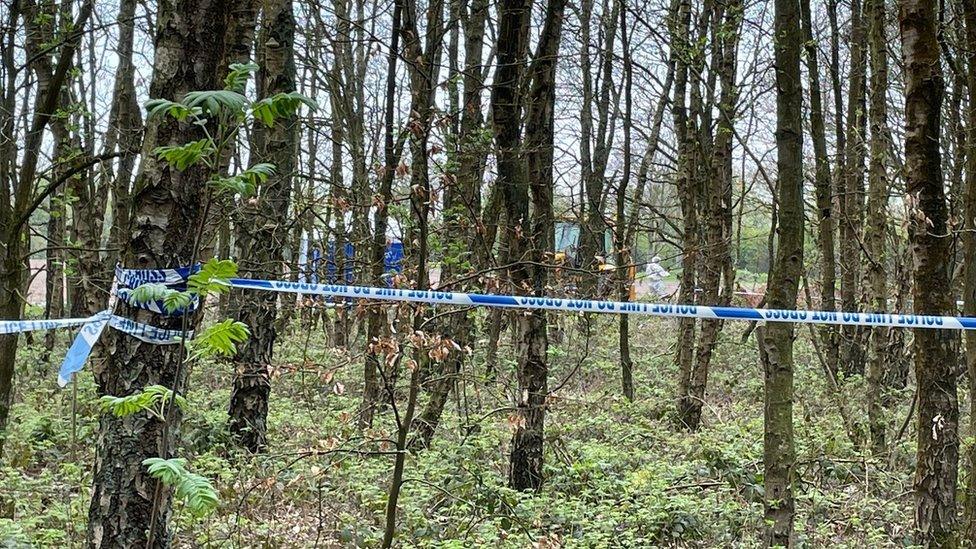
- Published18 May 2023
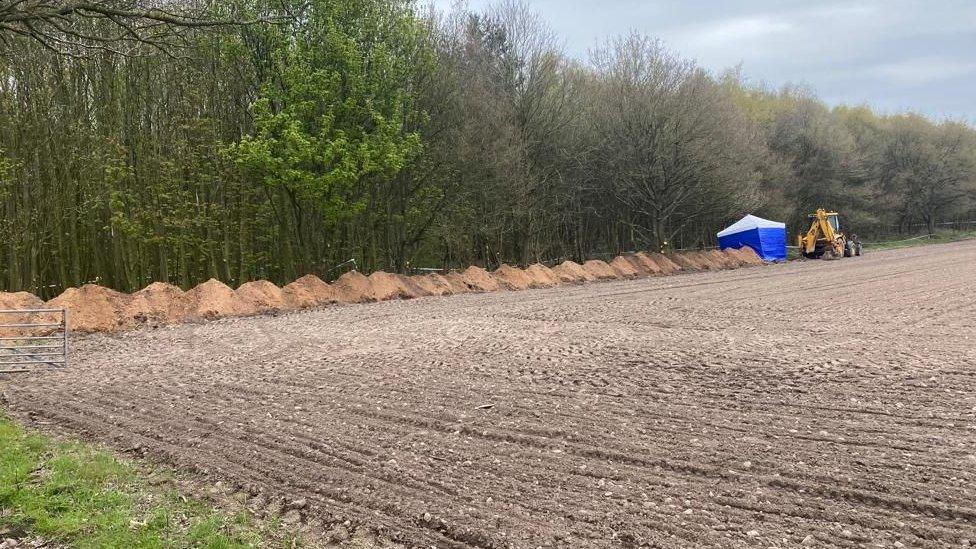
- Published11 May 2023
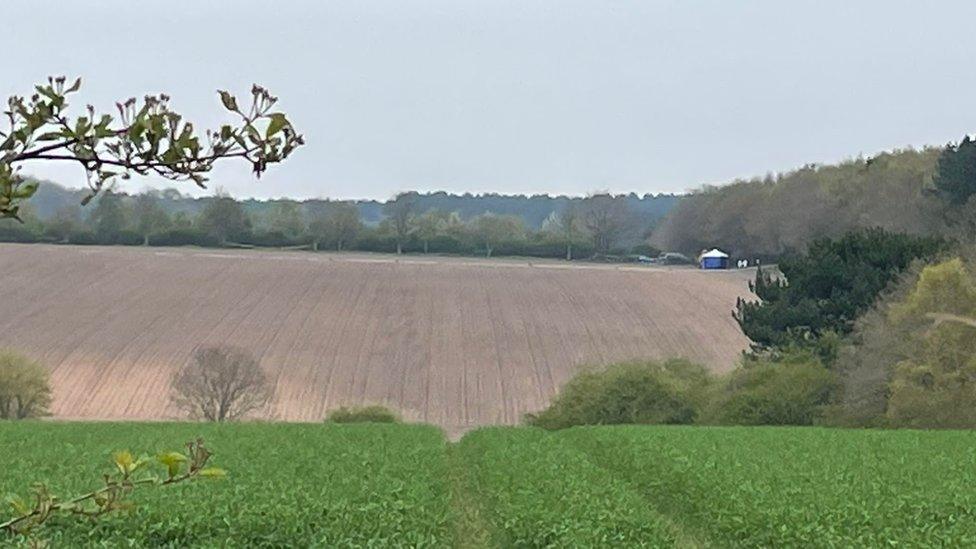
- Published27 April 2023
